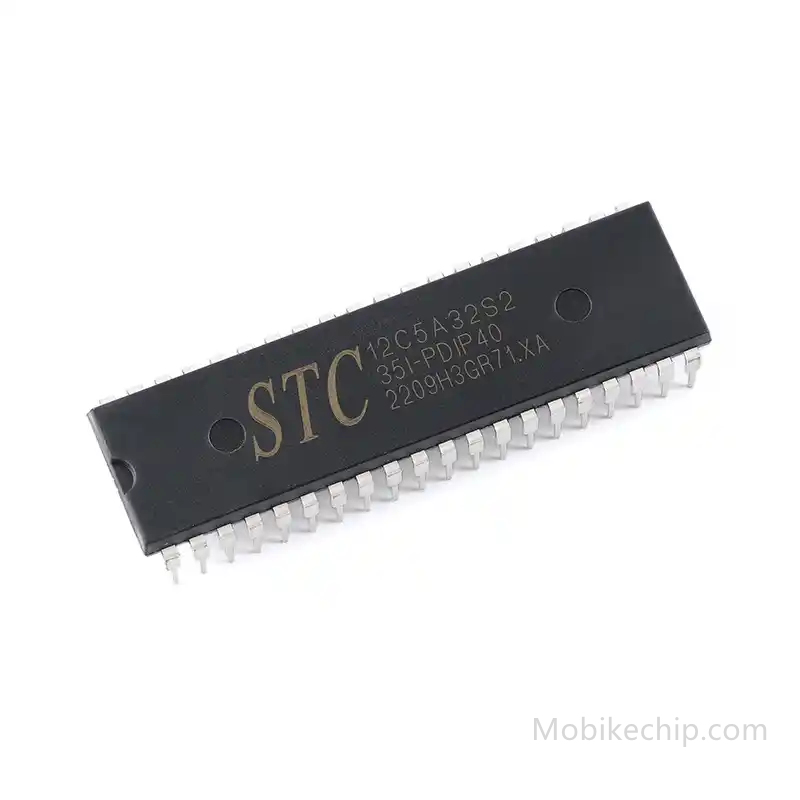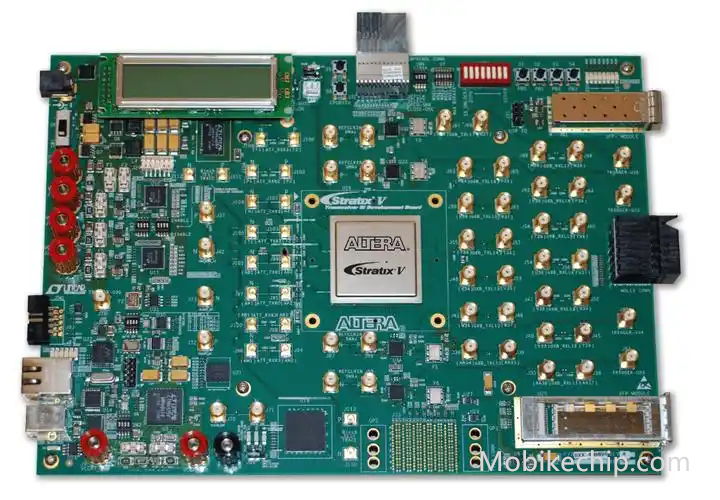Unlocking the Potential of Logic Chips: The Backbone of Modern Electronics
Logic chips, often referred to as the "brain" of modern electronics, play a pivotal role in powering everything from consumer gadgets to industrial machinery. These chips, embedded in nearly all electronic devices, are designed to process information based on logical operations, making them essential for automated decision-making, data manipulation, and signal processing. In this MobikeChip blog, we’ll explore their technology, functionality, and diverse applications in today's interconnected world.

What Are Logic Chips and How Do They Work?
Logic chips are specialized integrated circuits (ICs) designed to perform logical operations based on binary inputs. At their core, they operate using Boolean algebra, which relies on truth values (0 and 1) to execute operations like AND, OR, NOT, and XOR. These chips consist of numerous transistors arranged to form logic gates, which are the fundamental building blocks of digital circuits.
The functionality of a logic chip depends on its design. Simple logic chips, such as those containing basic gates, are used for straightforward tasks like signal routing or pulse generation. More advanced chips, including programmable logic devices (PLDs) and field-programmable gate arrays (FPGAs), allow users to define their functionality, making them suitable for complex, custom applications. The combination of compact size, speed, and versatility has made logic chips indispensable across industries.
Key Applications of Logic Chips in Modern Systems
Logic chips are ubiquitous in today’s digital landscape, with applications spanning numerous sectors:
1. Consumer Electronics
Devices like smartphones, smartwatches, and gaming consoles rely on logic chips to perform computational tasks, manage power distribution, and enhance user interfaces. For instance, the gaming industry leverages logic chips to process graphics and physics engines in real-time, providing immersive experiences. Meanwhile, smart home systems depend on these chips for automation, connectivity, and interaction with IoT ecosystems.
2. Automotive Industry
The rise of autonomous vehicles and advanced driver-assistance systems (ADAS) has propelled the demand for logic chips. They play a crucial role in processing sensor data from LiDAR, radar, and cameras, enabling real-time decision-making. Additionally, logic chips facilitate energy management in electric vehicles (EVs) and hybrid models, optimizing battery performance and supporting vehicle-to-grid (V2G) communication.
3. Industrial Automation

In factories and industrial settings, logic chips form the foundation of programmable logic controllers (PLCs) and other automation systems. These chips control machinery, manage workflows, and ensure precision in production lines. They are also essential for enabling predictive maintenance by analyzing data from connected sensors to detect potential issues before they lead to failures.
4. Telecommunications
The telecommunications sector relies heavily on logic chips to power networking equipment like routers, switches, and modems. These chips enable high-speed data transmission, manage network traffic, and support advanced protocols for seamless communication. With the advent of 5G, the demand for high-performance logic chips has increased, driving innovations in bandwidth and latency optimization.
Emerging Trends in Logic Chip Technology
The rapid evolution of technology has spurred significant advancements in logic chips. Here are some notable trends:
1. Miniaturization and Energy Efficiency
As electronic devices become smaller and more power-efficient, logic chips have followed suit. Modern fabrication techniques, such as extreme ultraviolet (EUV) lithography, have enabled manufacturers to produce chips with nodes as small as 3 nm. This miniaturization not only increases computational power but also reduces energy consumption, aligning with global sustainability goals.
2. Integration of AI and Machine Learning
The integration of artificial intelligence (AI) capabilities into logic chips has transformed their functionality. AI-enabled chips can perform complex computations on-device, reducing latency and enhancing privacy. These advancements are critical for applications like real-time facial recognition, language translation, and autonomous robotics.
3. Customization and Flexibility

FPGAs and system-on-chip (SoC) designs have redefined how logic chips are used. These customizable solutions allow engineers to tailor chip functionalities for specific use cases, accelerating innovation in fields like aerospace, medical devices, and fintech.
4. Enhanced Reliability for Critical Applications
In mission-critical systems, such as healthcare and defense, reliability is paramount. Manufacturers are focusing on radiation-hardened logic chips that can withstand extreme conditions, ensuring performance even in challenging environments like space exploration or nuclear facilities.
Why Choose MobikeChip for Logic Chips?
As the demand for advanced logic chips continues to grow, partnering with a reliable supplier is crucial. At MobikeChip, we pride ourselves on offering high-quality electronic components sourced from over 2,600 reputable manufacturers. Our extensive product range includes logic chips for a wide array of applications, from simple gate arrays to cutting-edge SoCs. Whether you're developing the next-generation wearable device or building robust industrial automation systems, our products ensure reliability and performance.
Conclusion
Logic chips are the cornerstone of the digital age, driving innovation across industries and enhancing everyday life. As technology continues to advance, these chips will become even more integral to enabling smarter, more efficient systems. At MobikeChip, we’re committed to supporting your technological journey with the best components and unparalleled expertise. Explore our range of products and unlock the potential of modern electronics.
About Us
MobikeChip offers a broad range of genuine electronic components from over 2,600 manufacturers at competitive prices. Our product portfolio includes Integrated Circuits (ICs), Discrete Semiconductor Products, Resistors, Capacitors, Relays, Switches, Transformers, Sensors, Transducers, Inductors, Coils, Chokes, Potentiometers, Variable Resistors, Crystals, Thermal Management products, and more.
Category page: Logic-Integrated Circuits (ICs)-Manufacturers-Dealer-MobikeChip